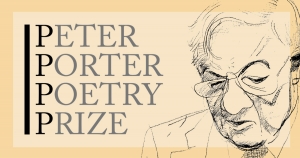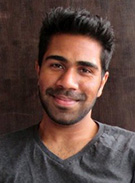Accessibility Tools
- Content scaling 100%
- Font size 100%
- Line height 100%
- Letter spacing 100%
Competitions and programs (112)
ABR Elizabeth Jolley Short Story Prize
The 2024 ABR Elizabeth Jolley Prize is worth $12,500 and has now closed for entries.
The Australian Book Review Elizabeth Jolley Short Story Prize is one of Australia's leading prizes for an original short story. It honours the work of the great Australian writer Elizabeth Jolley (1923–2007). Maria Takolander won the inaugural Australian Book Review Short Story Competition in 2010. In 2011 the prize was renamed the ABR Elizabeth Jolley Short Story Prize.
Past Jolley Prize winners
2010: Maria Takolander
2011: Carrie Tiffany and Gregory Day
2012: Sue Hurley
2013: Michelle Michau-Crawford
2014: Jennifer Down
2015: Rob Magnuson Smith (UK). Magnuson Smith was the first international winner of the Jolley Prize.
2016: Josephine Rowe
2017: Eliza Robertson (Canada)
2018: Madelaine Lucas (USA/Australia)
2019: Sonja Dechian
2020: Mykaela Saunders
2021: Camilla Chaudhary (UK)
2022: Tracy Ellis
2023: Rowan Heath
Click here to find out more about the 2024 Jolley Prize
Click here for more information about past winners of the Jolley Prize and to read their stories.
ABR gratefully acknowledges the support of Ian Dickson.
'To win the Jolley Prize is a surreal and wonderful feeling. At this stage of my writing life, when I am working on my first book, to receive this vote of confidence from such a respected literary establishment as Australian Book Review is incredibly meaningful. Most of all, this encouragement has given me new motivation to focus on my work and continue down this path.'
Madelaine Lucas, 2018 winner
‘My very first publication came from a magazine contest, so I know first hand the opportunities they provide to new writers. I am incredibly grateful to ABR and the judges for choosing my story and helping me to connect with Australian readers.’
Eliza Robertson (Canada), 2017 winner
Winning the Jolley Prize after being overseas for several years was an immensely bolstering welcome back – all the more so for the honour it pays to one of the most influential and tenacious forces in Australian literature.’
Josephine Rowe, 2016 winner
'I am thrilled to be this year's winner of the ABR Elizabeth Jolley Short Story Prize. This important prize encourages all international writers of fiction who want their work to be judged as it should be – on its own merits and strictly anonymously. I am very grateful to Australian Book Review and the judges.'
Rob Magnuson Smith (UK), 2015 Winner
'To win the ABR Elizabeth Jolley Short Story Prize is a delicious honour.'
Gregory Day, 2011 joint winner
2016 ABR Elizabeth Jolley Short Story Prize
Australian Book Review is delighted to announce that Josephine Rowe has won the 2016 ABR Elizabeth Jolley Short Story Prize for her story 'Glisk'. Ian Dickson announced Josephine as the overall winner at the 2016 Melbourne Writers Festival. Anthony Lawrence placed second for his story 'Ash' and Jonathan Tel came third for his story 'The Water Calligrapher's Women'. Subscribers can read all three shortlisted stories in the August 2016 Fiction issue. We would like to congratulate all three shortlisted entrants and thank all those who entered their stories
This year the prestigious ABR Elizabeth Jolley Short Story Prize Prize attracted almost 1,400 entries from thirty-eight countries. The 2016 Jolley Prize is worth a total of $12,500, with a first prize of $7,000 and supplementary prizes of $2,000 and $1,000.
The judges also commended three stories – ‘Help Me Harden My Heart’ by Dom Amerena, 'Window’ by Cate Kennedy, and ‘Slut Trouble’ by Beejay Silcox. The commended authors each receive $750 and their stories will be published by ABR.
The 2016 Jolley Prize was judged by ABR Deputy Editor Amy Baillieu, and authors Maxine Beneba Clarke and David Whish-Wilson. Click here for more information about the judges.
About the 2016 Jolley Prize shortlisted authors
Anthony Lawrence has published sixteen books of poems and a novel. His most recent collection is Headwaters (Pitt Street Poetry, 2016). His books and poems have won a number of awards, including the Peter Porter Poetry Prize (for 'Domestic Emergencies' in 2010) and the NSW Premier's Award. He lives on the far north coast of New South Wales. Read his shortlisted story 'Ash'
Josephine Rowe is the author of two short story collections and the novel A Loving, Faithful Animal (2016). Her fiction and essays have appeared in McSweeney’s Quarterly Concern, Best Australian Stories, The Monthly, The Saturday Paper, and elsewhere. She is a recent recipient of a Stegner Fellowship in fiction from Stanford University. Her story ‘Suitable for a Lampshade’ won the Reader’s Choice Award in the 2010 ABR Elizabeth Jolley Short Story Prize. Read her winning story 'Glisk'.
Jonathan Tel’s stories have won the Sunday Times EFG Short Story Prize 2016, the Commonwealth Short Story Prize 2015, and the VS. Pritchett Prize from the Royal Society of Literature 2015. His story ‘Year of the Panda’ was commended in the 2015 ABR Elizabeth Jolley Short Story Prize. He has lived in Tokyo, Jerusalem, Berlin, London, New York and San Francisco. Read his shortlisted story 'The Water Calligrapher's Women'
The 2016 Jolley Prize longlist
'Help Me Harden My Heart' by Dom Amerena (Vic) - Commended
'Like Family' by Glendaliz Camacho (US)
'Material Remains' by Stephanie Buckle (NSW)
'Batons and Ropes' by SJ Finn (Vic)
'Blue Monsters' by Anthony Howcroft (US)
'Window' by Cate Kennedy (Vic) – Commended
'Ash' by Anthony Lawrence (NSW) - Shortlisted
'First Regret' by Jessica Lim (QLD)
'The other girl' by Beth McMullan (WA)
'Shearwater' by Astrid O'Neill (ACT)
'Honeysuckled' by Elisabeth Passmore (NSW)
'Dignity' by Mirandi Riwoe (QLD)
'Glisk' by Josephine Rowe (Vic) – Winner
'Perfect' by Kate Ryan (Vic)
'Slut Trouble' by Beejay Silcox (ACT) – Commended
'Will it leave a scar?' by Elizabeth Smyth (QLD)
'The Water Calligrapher's Women' by Jonathan Tel (UK) – Shortlisted
'Black Soil' by Jessica White (QLD)
'Mothership' by Michelle Wright (Vic)
Please read our list of Frequently Asked Questions before contacting us with a question about the Jolley Prize.
You may be interested in reading the shortlisted stories from previous years.
More information about all our past winners is available here, along with links to their stories.
2015 Jolley Prize winner: Rob Magnuson Smith
Announcing the 2015 Jolley Prize winner
Australian Book Review is delighted to announce that Rob Magnuson Smith has won the 2015 ABR Elizabeth Jolley Short Story Prize for his story 'The Elector of Nossnearly'. Award-winning author Steven Carroll announced Rob as the overall winner at the 2015 Brisbane Writers Festival. Michelle Cahill placed second for her story 'Borges and I' and Harriet McKnight came third for her story 'Crest'. Subscribers can read all three shortlisted stories in the September 2015 Fiction issue. We would like to congratulate all shortlisted entrants and thank all those who entered their stories.
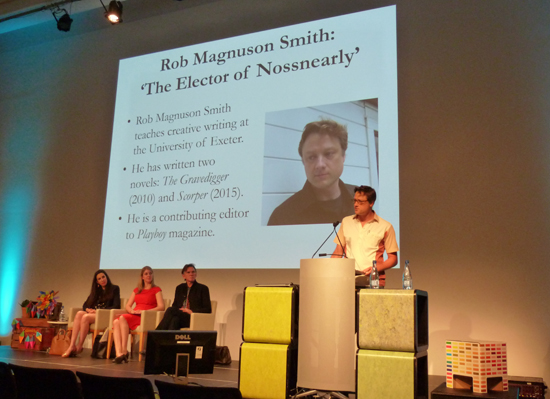 Rob Magnuson Smith reads from his story 'The Elector of Nossnearly' at the 2015 Jolley Prize ceremony at the Brisbane Writers Festival
Rob Magnuson Smith reads from his story 'The Elector of Nossnearly' at the 2015 Jolley Prize ceremony at the Brisbane Writers Festival
The ABR Elizabeth Jolley Short Story Prize is one of the country’s most prestigious awards for short fiction. This year the Jolley Prize attracted over 1200 entries from over thirty-one different countries, most of stories were newly written for this competition. They kept busy our three judges: Amy Baillieu, Sarah Holland-Batt, and Paddy O'Reilly.
About Rob Magnuson Smith
 Rob Magnuson Smith's début novel, The Gravedigger, appeared in 2010 after winning the Pirate’s Alley William Faulkner Award. He has written many articles of investigative journalism for Playboy, where he is contributing editor. His second novel is Scorper (Granta Books, 2015). A graduate of University of East Anglia’s MA in Creative Writing and Bath Spa University’s PhD in Creative Writing, Rob is currently a lecturer at Exeter University and lives in Cornwall. Subscribers can read his winning story 'The Elector of Nossnearly' in the September 2015 Fiction issue.
Rob Magnuson Smith's début novel, The Gravedigger, appeared in 2010 after winning the Pirate’s Alley William Faulkner Award. He has written many articles of investigative journalism for Playboy, where he is contributing editor. His second novel is Scorper (Granta Books, 2015). A graduate of University of East Anglia’s MA in Creative Writing and Bath Spa University’s PhD in Creative Writing, Rob is currently a lecturer at Exeter University and lives in Cornwall. Subscribers can read his winning story 'The Elector of Nossnearly' in the September 2015 Fiction issue.
2016 Calibre Prize Judges
Sophie Cunningham has been a writer and publisher in Australia for thirty years. A former publisher and editor, she is the author of two novels, Geography (2004) and Bird (2008). For the City Series, she wrote Melbourne (2011). Warning: The Story of Cyclone Tracy, her most recent book, was published by Text Publishing in 2014 and was long-listed for both a Walkley Award and the Kibble Prize. She is a former Editor of Meanjin, and until recently was Chair of the Literature Board of the Australia Council. She is a founding and current board member of The Stella Prize, a prize for Australian women’s writing. She lived in Brooklyn, New York, in 2014 and is now based in San Francisco, California. She is currently writing a novel called This Devastating Fever, about Leonard Woolf’s time in Ceylon in the early 1900s, and a collection of linked essays, tentatively entitled 50. She won the 2015 Calibre Prize for her essay 'Staying with the trouble'.
Peter Rose has been the Editor of Australian Book Review since 2001. Previously he was a publisher at Oxford University Press throughout the 1990s. Rose has published several books of poetry, a family memoir, Rose Boys (2003, now a Text Classic), and two novels, the most recent being Roddy Parr (Fourth Estate, 2010). His essays have appeared in The Best Australian Essays, and he edited the 2007 and 2008 editions of The Best Australian Poems (Black Inc.). Peter Rose’s long experience in publishing and the literary world complement the magazine’s history of central involvement in Australian letters.
2016 Porter Prize Judges

Luke Davies is a poet, novelist, and screenplay writer. His first collection, Four Plots for Magnets, appeared in 1982, when he was twenty. His novel Candy (1997) was successfully filmed in 2006. He has won many awards, including the Grace Leven Prize for Poetry, the Philip Hodgins Memorial Medal, the Queensland Premier’s Literary Awards Judith Wright Prize, and the Age Book of the Year. His book Interferon Psalms won the inaugural Prime Minister’s Literary Award for poetry in 2012.
 Lisa Gorton, who lives in Melbourne, became ABR’s Poetry Editor in October 2013. She studied at the Universities of Melbourne and Oxford. A Rhodes Scholar, she completed a Masters in Renaissance Literature and a Doctorate on John Donne at Oxford University. Her first poetry collection, Press Release (2007), won the Victorian Premier’s Prize for Poetry. Her 2013 poetry collection Hotel Hyperion (also Giramondo) was shortlisted for the Queensland Literary Awards. She was editor of The Best Australian Poems 2013 (Black Inc.). Her latest novel, The Life of Houses, was published in 2015.
Lisa Gorton, who lives in Melbourne, became ABR’s Poetry Editor in October 2013. She studied at the Universities of Melbourne and Oxford. A Rhodes Scholar, she completed a Masters in Renaissance Literature and a Doctorate on John Donne at Oxford University. Her first poetry collection, Press Release (2007), won the Victorian Premier’s Prize for Poetry. Her 2013 poetry collection Hotel Hyperion (also Giramondo) was shortlisted for the Queensland Literary Awards. She was editor of The Best Australian Poems 2013 (Black Inc.). Her latest novel, The Life of Houses, was published in 2015.

Kate Middleton is an Australian writer. She is the author of the poetry collections Fire Season (Giramondo, 2009), awarded the Western Australian Premier’s Award for Poetry in 2009 and Ephemeral Waters (Giramondo, 2013), shortlisted for the NSW Premier’s award in 2014. From September 2011-September 2012 she was the inaugural Sydney City Poet.
The Peter Porter Poetry Prize
The Peter Porter Poetry Prize is one of Australia’s most prestigious prizes for a new poem. The Prize – open to all poets writing in English – is named after the great Australian poet Peter Porter (1929–2010). The Prize was first awarded in 2005 (Stephen Edgar) and was renamed in 2011, following Peter Porter’s death. Past winners include Tracy Ryan, Judith Bishop, and Anthony Lawrence.
Entries for the 2025 Peter Porter Poetry Prize are now closed. It is the twenty-first Porter Prize.
Please read our Frequently Asked Questions page before contacting us with queries about the Porter Prize.
Click here for more information about past winners and to read their poems.
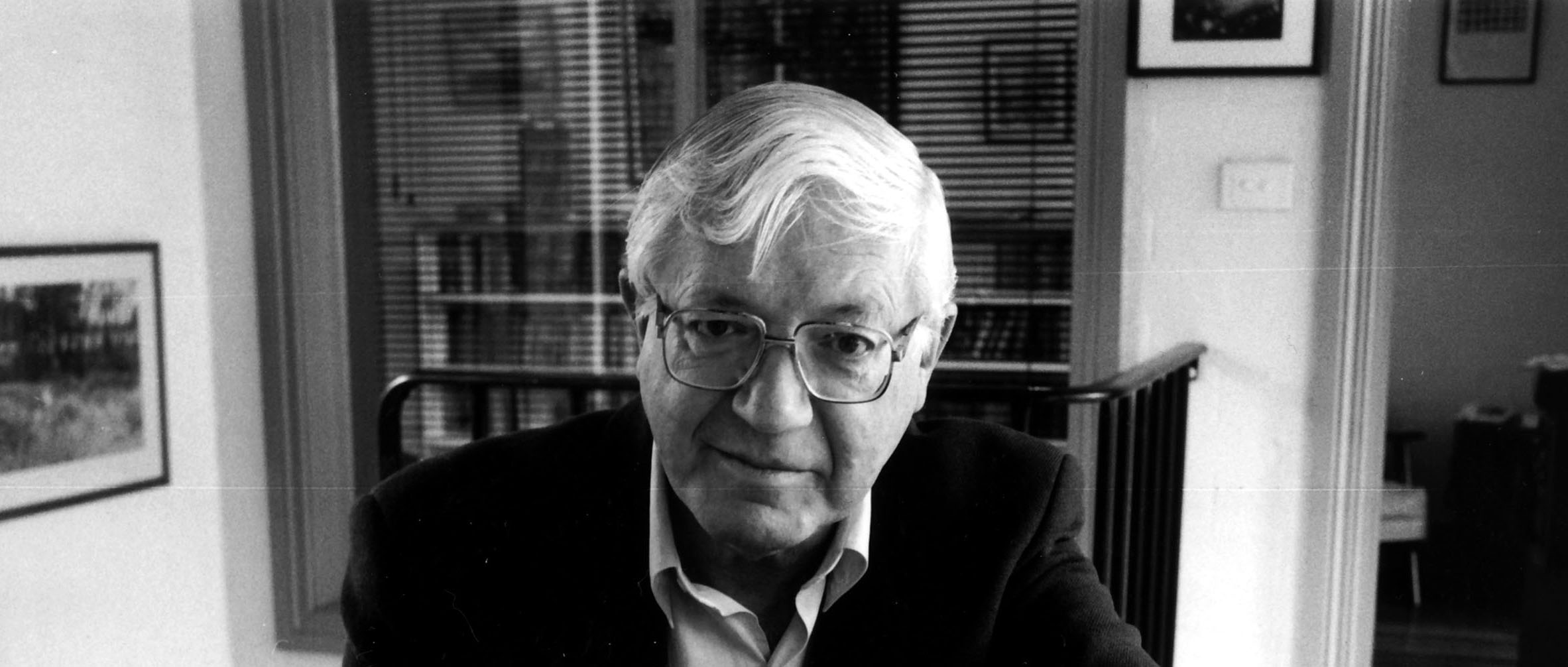
The Peter Porter Poetry is funded by the ABR Patrons, including support in memory of Kate Boyce.
2015 winner
 Sophie Cunningham‘Staying with the trouble’ covers very different terrain from that of Martin Thomas’s and Christine Piper’s celebrated Calibre-winning essays: ‘“Because it’s your country”: Bringing Back the Bones to West Arnhem Land’ (2013) and ‘Unearthing the Past’ (2014), which dealt with historical wrongs and biological horrors, respectively. In her essay, Sophie Cunningham describes an epic walk up Broadway in New York, and others like it. The tone is self-deprecating, conversational, and ‘gloriously social’, but all sorts of themes arise along the way: Alzheimer’s, Horseshoe Crabs, history, writers, violence against women, racism, Selma, and climate change. It is a celebration of ‘randomness’, but also testifies to Sophie Cunningham’s belief in the importance of ‘staying with the trouble’.
Sophie Cunningham‘Staying with the trouble’ covers very different terrain from that of Martin Thomas’s and Christine Piper’s celebrated Calibre-winning essays: ‘“Because it’s your country”: Bringing Back the Bones to West Arnhem Land’ (2013) and ‘Unearthing the Past’ (2014), which dealt with historical wrongs and biological horrors, respectively. In her essay, Sophie Cunningham describes an epic walk up Broadway in New York, and others like it. The tone is self-deprecating, conversational, and ‘gloriously social’, but all sorts of themes arise along the way: Alzheimer’s, Horseshoe Crabs, history, writers, violence against women, racism, Selma, and climate change. It is a celebration of ‘randomness’, but also testifies to Sophie Cunningham’s belief in the importance of ‘staying with the trouble’.
On learning that she had won the Calibre Prize, Sophie Cunningham, who recently moved from Brooklyn to San Francisco, told Advances: 'I wrote this essay with no expectations, from a concern with how one narrates the personal and fragmented while chronicling issues as broad as climate change and mass extinction. I had become obsessed with walking and needed a deadline. The Calibre Prize has rewarded a rich variety of writers who have tackled an extraordinary range of topics. Each year I’ve read the winner and been inspired. I feel incredibly honoured to now be among these winners’ number.’
This is the ninth time that ABR has offered the Calibre Prize, which is intended to advance the essay form in this country. We look forward to offering Calibre again in 2016.
Sophie Cunningham’s winning essay is published in the May 2015 issue of ABR.
![]() Click here to download the media release.
Click here to download the media release.
Purchase the May 2015 print edition.
Subscribe to ABR Online to gain access to this issue online, plus the ABR archive (containing all Calibre Prize essays published from 2011).
Click here for more information about past winners.
Click here for more information about the judges.
We gratefully acknowledge the long-standing support of Mr Colin Golvan QC.
Past ABR Internships
Comments from previous Editorial Cadets/Interns
 ‘With its editorial mentorship, rich array of programs, and diverse roster of contributors, ABR provides one of the most rigorous and rewarding environments for any budding editor or publisher. I cannot think of a better place to have started my career in journalism.’
‘With its editorial mentorship, rich array of programs, and diverse roster of contributors, ABR provides one of the most rigorous and rewarding environments for any budding editor or publisher. I cannot think of a better place to have started my career in journalism.’
James Jiang
ABR Editorial Cadet (2021-22)
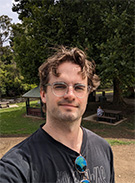 ‘The opportunity to work for an international magazine of prestige and intellectual rigour has greatly shaped my editorial skillset and knowledge of Australia’s literary and cultural landscape.’
‘The opportunity to work for an international magazine of prestige and intellectual rigour has greatly shaped my editorial skillset and knowledge of Australia’s literary and cultural landscape.’
Jack Callil
Digital Editor (2019-22)
ABR Editorial Intern (2018-19)
'I am extremely grateful to have been offered an editorial internship, and to eventually work in a more senior capacity, at Australian Book Review. I feel a tremendous sense of pride to have worked for a prestigious literary and arts journal that upholds exemplary editorial standards while fostering emerging talent. I am excited by the potential of ABR to grow further and continue to be the gold standard of Australian arts and literary journalism.'
Dilan Gunawardana
ABR Deputy Editor (Digital) 2017-2018
ABR Editorial Intern 2016–17
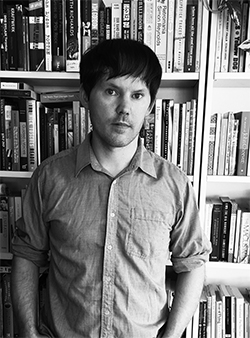 'ABR’s editorial internship is something very rare and valuable: an opportunity for a recent graduate to take the skills they have been taught and develop them in the rigorous editorial environment of a high calibre literary and arts magazine. By requiring you to be active across all aspects of the production of the magazine, from commissioning reviews, to copyediting and proofreading, to introducing new features to the magazine, through to digitising the issue each month for ABR Online, it prepares you for the widest range of possible roles in the publishing industry.'
'ABR’s editorial internship is something very rare and valuable: an opportunity for a recent graduate to take the skills they have been taught and develop them in the rigorous editorial environment of a high calibre literary and arts magazine. By requiring you to be active across all aspects of the production of the magazine, from commissioning reviews, to copyediting and proofreading, to introducing new features to the magazine, through to digitising the issue each month for ABR Online, it prepares you for the widest range of possible roles in the publishing industry.'
Luke Horton
ABR Editorial Intern 2015–16
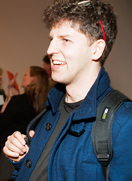 ‘What I valued most about the internship was the diversity and range of the position. I was able to explore and work in all aspects of the magazine’s production, from formatting, editing, advertising, designing, paging, and researching, to digitising the entire magazine online. I feel that the skills and knowledge that I acquired throughout the internship will place me in good stead to tackle any new position in the publication sphere with confidence, knowledge, and editorial acumen.’
‘What I valued most about the internship was the diversity and range of the position. I was able to explore and work in all aspects of the magazine’s production, from formatting, editing, advertising, designing, paging, and researching, to digitising the entire magazine online. I feel that the skills and knowledge that I acquired throughout the internship will place me in good stead to tackle any new position in the publication sphere with confidence, knowledge, and editorial acumen.’
Sam Zifchak
ABR Editorial Intern 2014
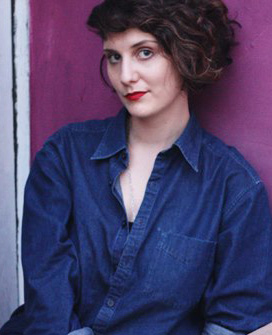
‘My time spent at ABR enabled me to engage with virtually every aspect of the magazine’s production in a way that is scarcely possible in other internships. The variety of the position is invaluable to any aspiring editor, as is the close contact you have in the role with the work of some of Australia’s finest writers. I certainly have ABR to thank for my subsequent employment as a magazine editor overseas.’
Sara Savage
ABR Patrons’ Editorial Intern, 2013
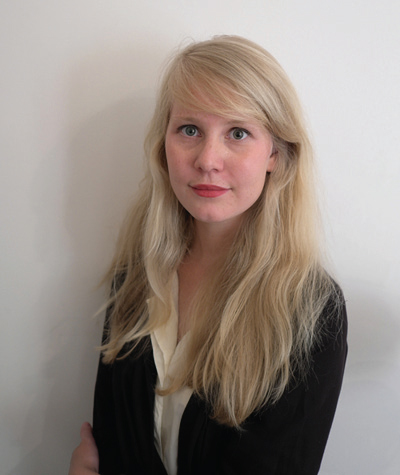 ‘Being on the staff of a magazine of the calibre of Australian Book Review, with its long history in Australian letters and fine editorial standards, is a singular experience, and it has no doubt been the defining event of my professional life thus far. I look forward to drawing on what I have learned at ABR in other areas of my career and my own writing.’
‘Being on the staff of a magazine of the calibre of Australian Book Review, with its long history in Australian letters and fine editorial standards, is a singular experience, and it has no doubt been the defining event of my professional life thus far. I look forward to drawing on what I have learned at ABR in other areas of my career and my own writing.’
Milly Main
ABR Ian Potter Foundation Editorial Intern, 2012
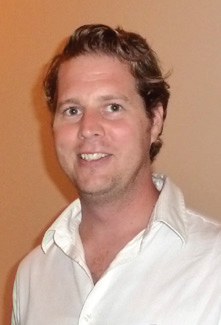 ‘I am very proud of the contribution I was able to make at ABR, in particular through the development of ABR Online, which has already demonstrated its worth. I am also proud of the wide range of skills I have been able to develop, touching all aspects of the magazine’s development, editorial, and production.’
‘I am very proud of the contribution I was able to make at ABR, in particular through the development of ABR Online, which has already demonstrated its worth. I am also proud of the wide range of skills I have been able to develop, touching all aspects of the magazine’s development, editorial, and production.’
Tim Brewer
ABR Sidney Myer Fund Editorial Intern, 2011
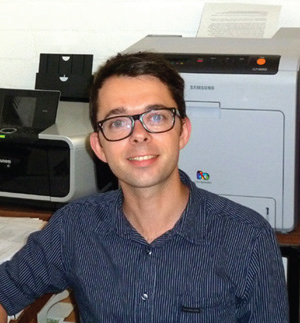 ‘As the recipient of an internship at Australian Book Review in 2009, I know the benefits of such a program firsthand. My internship was an unqualified success, and resulted not only in an increase in my editing knowledge and skills, but also in full-time employment.’
‘As the recipient of an internship at Australian Book Review in 2009, I know the benefits of such a program firsthand. My internship was an unqualified success, and resulted not only in an increase in my editing knowledge and skills, but also in full-time employment.’
Mark Gomes
ABR Australian Publishers Association Editorial Intern, 2009
2019 ABR Patrons' Fellowship – worth $10,000
Applications for the 2019 ABR Patrons’ Fellowship have now closed. An announcement will be made in early 2019.
My year as an ABR fellow has been the most rewarding of my writing life. This year I've not only been encouraged, but supported, to press my ear against our culture's chest and listen to its heartbeat. I'm indebted to the ABR team, and its warm and generous community of readers and donors, for giving me the chance to grow into my profession.'
Beejay Silcox, ABR Fortieth Birthday Fellow (2018)
Australian Book Review is pleased to advertise the 2019 ABR Patrons’ Fellowship. Funded by ABR Patrons, the Fellowship is worth $10,000. The Fellow will make a broad contribution to the magazine throughout the year, with a series of four substantial articles.
ABR welcomes proposals from Australian creative writers, freelance reviewers, journalists, commentators and scholars. The Fellow’s articles will appear in the print magazine and ABR Online. Contributors to the magazine and previous Fellows and Fellowship applicants are strongly encouraged to apply.
Applications for the 2019 ABR Patrons' Fellowship closed at 5pm on 10 December 2018.
2019 ABR Patrons' Fellowship Application Guidelines
What is the Australian Book Review Patrons’ Fellowship?
This Fellowship – funded by Australian Book Review’s generous Patrons – will be a highlight of our 2019 publishing year. The Fellow will make a broad contribution to the magazine throughout the year, with a series of four substantial articles. ABR welcomes proposals from Australian creative writers, freelance reviewers, journalists, commentators, and scholars.
Who can apply?
Any writer with a publication record (books, creative writing, essays, or journalism) is eligible. Applicants must be Australian citizens or have permanent resident status in Australia. ABR staff and Board members are ineligible. Contributors to the magazine and previous Fellows and Fellowship applicants are strongly encouraged to apply.
What is ABR offering?
The Fellow will receive a total of $10,000, payable thus – $2,500 on announcement of the Fellowship and three further payments of $2,500 on publication of the final three contributions to the magazine. The Fellow will work closely with the Editor of ABR throughout the year.
Expected outcomes
ABR is seeking a suite of brilliant literary journalism from a highly engaged and professional writer. During the course of the Fellowship, the Fellow will produce four substantial articles for publication in the magazine in 2019. These can be review essays, commentaries, or interviews – or a combination of all three genres. Each contribution will be 2,000 words or longer. The features (agreed on with the ABR Editor) will be staggered throughout the year. The articles will appear in the print and online editions of ABR. The Fellow will be available for media coverage and at least one literary/promotional event. NB the Fellow is not expected to complete the Fellowship onsite.
Familiarity with Australian Book Review
ABR looks for support and engagement from its senior/regular contributors. Applicants must demonstrate considerable familiarity with ABR – its style, its content, its direction. Those totally new to or unfamiliar with the magazine or should not apply.
Selection process
The Fellow will be chosen by a panel including ABR Editor Peter Rose. We will announce the decision in early 2019. No correspondence will be entered into once the decision has been announced. ABR reserves the right not to award a Fellowship in a particular round.
How to apply?
Applicants are strongly encouraged to refer to the Frequently Asked Questions section on our website. Applicants may are also encouraged to discuss their proposals with the Editor before submitting them: (03) 9699 8822 or This email address is being protected from spambots. You need JavaScript enabled to view it.
The application should comprise a proposal of 2-3 pages plus a short CV. Applicants should summarise the following: their interest in the magazine and its direction; why they believe their contributions will advance ABR and win us new readers; and the likely nature/scope/genre of the four proposed contributions. (We are mindful that the Fellowship will evolve throughout the year.) Applicants should also attach two examples of their literary journalism.
Applications must be emailed to This email address is being protected from spambots. You need JavaScript enabled to view it. by 5pm on 10 December 2018.
There is no application fee.
ABR gratefully acknowledges the generous support of the ABR Patrons.
The ABR Fellowships are intended to reward fine Australian writers and to advance the magazine's commitment to critical debate and long-form journalism. All published Australian writers are eligible to apply.
Click here to find out more about the ABR Fellowship program.
Click here to find out more about current Fellowships..
Click here to find out more about published Fellowships.
Please read our list of Frequently Asked Questions before contacting us with a question about the ABR Fellowship program.
2015 Jolley Prize
Australian Book Review is delighted to announce Rob Magnuson Smith has won the 2015 ABR Elizabeth Jolley Short Story Prize for his story 'The Elector of Nossnearly'. Steven Carroll announced Rob as the overall winner at the 2015 Brisbane Writers Festival. Michelle Cahill placed second for her story 'Borges and I' and Harriet McKnight came third for her story 'Crest'. Subscribers can read all three shortlisted stories in the September 2015 Fiction issue.
This year the Jolley Prize – one of Australia’s most lucrative and prestigious awards for short fiction – attracted about 1,200 entries. The Jolley Prize was judged by ABR Deputy Editor Amy Baillieu, poet and academic Sarah Holland-Batt, and author Paddy O’Reilly. The Jolley Prize is worth $8,000 with a first prize of $5,000 and supplementary prizes of $2,000 and $1,000.
About the 2015 Jolley Prize shortlisted authors
 Rob Magnuson Smith’s début novel, The Gravedigger, appeared in 2010 after winning the Pirate’s Alley William Faulkner Award. He has written many articles of investigative journalism for Playboy, where he is contributing editor. His second novel is Scorper (Granta Books, 2015). A graduate of University of East Anglia’s MA in Creative Writing and Bath Spa University’s PhD in Creative Writing, Rob is currently a lecturer at Exeter University and lives in Cornwall. Subscribers can read his winning story 'The Elector of Nossnearly' in the September 2015 Fiction issue.
Rob Magnuson Smith’s début novel, The Gravedigger, appeared in 2010 after winning the Pirate’s Alley William Faulkner Award. He has written many articles of investigative journalism for Playboy, where he is contributing editor. His second novel is Scorper (Granta Books, 2015). A graduate of University of East Anglia’s MA in Creative Writing and Bath Spa University’s PhD in Creative Writing, Rob is currently a lecturer at Exeter University and lives in Cornwall. Subscribers can read his winning story 'The Elector of Nossnearly' in the September 2015 Fiction issue.
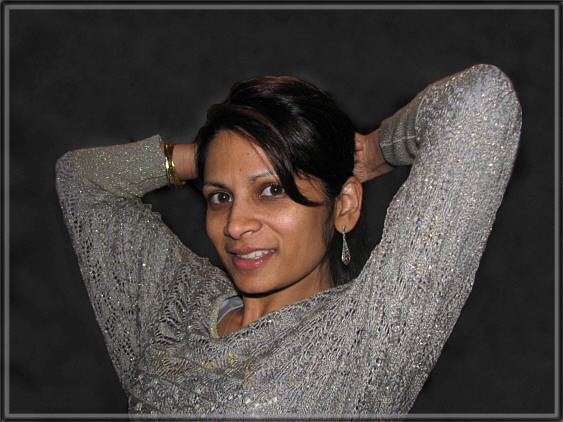 Michelle Cahill lives in Sydney. Her fiction has appeared in Meanjin, Etchings, and Southerly. She won the Kingston Writing School Hilary Mantel International Short Story Prize. She is a Doctoral Candidate in Creative Arts at the University of Wollongong. Her first short story collection, Letter to Pessoa, is forthcoming from Giramondo. Subscribers can read her story 'Borges and I' in the September 2015 Fiction issue.
Michelle Cahill lives in Sydney. Her fiction has appeared in Meanjin, Etchings, and Southerly. She won the Kingston Writing School Hilary Mantel International Short Story Prize. She is a Doctoral Candidate in Creative Arts at the University of Wollongong. Her first short story collection, Letter to Pessoa, is forthcoming from Giramondo. Subscribers can read her story 'Borges and I' in the September 2015 Fiction issue.
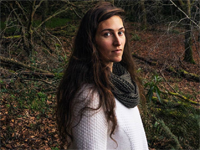 Harriet McKnight currently lives in Melbourne. In 2014, her work was shortlisted for the Overland Victoria University Short Story Prize, and published in The Lifted Brow: Digital Edition. In May 2015, she featured as the writer in residence for The Suburban Review. Harriet has worked since 2012 as the deputy editor of The Canary Press. Subscribers can read her story 'Crest' in the September 2015 Fiction issue.
Harriet McKnight currently lives in Melbourne. In 2014, her work was shortlisted for the Overland Victoria University Short Story Prize, and published in The Lifted Brow: Digital Edition. In May 2015, she featured as the writer in residence for The Suburban Review. Harriet has worked since 2012 as the deputy editor of The Canary Press. Subscribers can read her story 'Crest' in the September 2015 Fiction issue.
Please read our list of Frequently Asked Questions before contacting us with a question about the Jolley Prize.
You may be interested in reading the shortlisted stories from previous years. More information about all our past winners is available here, along with links to their stories.
'To win the ABR Elizabeth Jolley Short Story Prize is a delicious honour.'
Gregory Day, joint winner, 2011
'ABR has also contributed to elevating the status of the short story with its annual Jolley Prize.'
Blanche Clark, Herald Sun
ABR gratefully acknowledges Mr Ian Dickson's generous support for the Jolley Prize.

